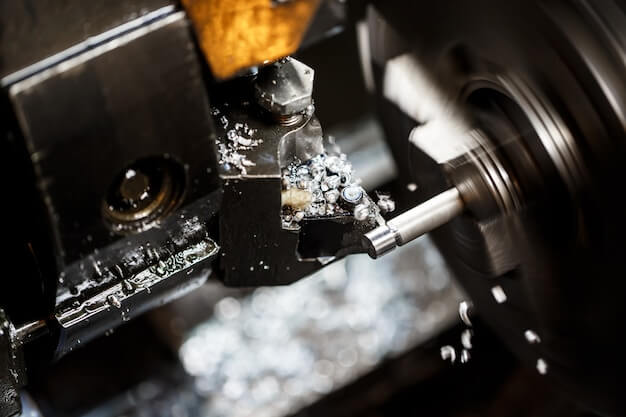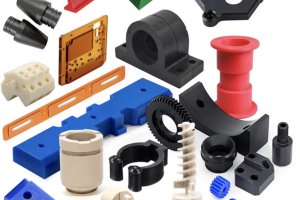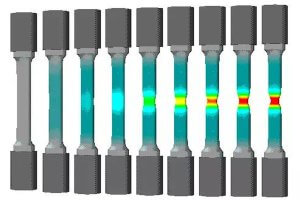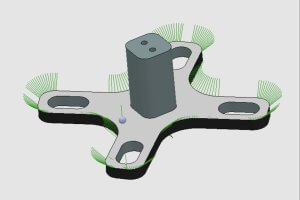Understanding The Role of Coolant in CNC Machining
The utilization of coolant, also known as cutting fluid, is an integral aspect of Computer Numerical Control (CNC) machining processes. This crucial substance aids to dissipate the heat generated during the machining operations thereby preventing any damages to both the machine and workpiece due to excessive temperatures. Moreover, it ensures smoother movement of tooling which helps in achieving precision cuts with excellent surface finish whilst minimizing the wear and tear of the tools. Choosing the appropriate type of coolant can significantly enhance the efficiency and longevity of your CNC machines. There are primarily two types of coolants used: water-based and oil-based solutions. Each possesses distinct properties that make them suitable for various applications, hence necessitating careful selection.
- Water-Based Solutions: These are mostly employed in high-speed machining owing to their excellent heat dissipation capabilities.
- Oil-Based Solutions : On contrast, these provide superior lubrication making them ideal for operations involving heavy-duty cutting or grinding.
Therefore, understanding the needs of your specific machining application is pivotal in choosing the right coolant solution for optimized performance.
The Basics of Water-Based and Oil-Based Solutions
- Water-based solutions offer efficient cooling, are environmentally friendly, and are cost-effective for CNC machining operations.
- Oil-based solutions provide superior lubrication, are more stable at high temperatures, and are suitable for heavy-duty machining applications.
Pros and Cons of Water-Based Coolants
Water-based coolants present numerous advantages for CNC machining. For instance, they offer excellent cooling properties due to the high heat capacity of water. This allows prolonged machining cycles due to less overheating, effectively increasing efficiency and reducing wear on your tools. Furthermore, water-based solutions can be considerably safer as they are non-flammable unlike oil-based alternatives.
However, these advantages come with some notable drawbacks. The primary disadvantage is that water can encourage rust formation on your machinery if not appropriately treated or monitored carefully. Additionally, water-based coolant tends to evaporate quickly in certain conditions which causes its concentration to change continuously, requiring more frequent maintenance and replacement than oil-based coolants. Thus, while choosing between water-based and oil-based coolants, it’s imperative to weigh up these pros and cons based on the specific requirements of a given machining process.
Pros and Cons of Oil-Based Coolants
Oil-based coolants have earned their place in various industries, particularly the CNC machining one, for a myriad of reasons. One major benefit is their superb lubrication properties that drastically reduce tool wear and tear over time; this is prevalent in high-speed machining where the tools are subjected to extreme conditions. An exemplary scenario can be observed in an aerospace manufacturing setup, where oil-based coolants drive down operational costs by prolonging tool lifespan. On top of that, they offer exceptional thermal stability and do not easily evaporate or decompose under heat.
However, it’s equally critical to elucidate some drawbacks associated with oil-based coolants. Perhaps the most notable downside is regarding health concerns as prolonged inhalation or skin contact may lead to medical issues, much like handling any form of petroleum product. For instance, employees operating machinery must cultivate safety habits such as wearing gloves and masks to mitigate exposure risk. Costs also scale upwards concerning disposal procedures due to their classification as hazardous materials. Lastly, oil-based coolant use comes with environmental concerns, as improper disposal potentially triggers severe environmental damage.
Factors to Consider When Choosing a Coolant for CNC Machines
In selecting the appropriate coolant for CNC machines, there are several key considerations. First and foremost is material compatibility. The coolant selected must match with the materials being machined to ensure optimal performance and avoid damaging the parts or the machine itself.
- Safety considerations: Using coolants in CNC machining process involves health and safety factors as improper handling can cause harm to operators. For instance, water-based coolants despite having less serious health implications compared to oil-based ones, pose a risk of bacterial growth if not managed properly.
- Environmental impact: Coolants have varying environmental impacts. Water-based solutions are generally more eco-friendly than their oil-based counterparts which can pose potential pollution concerns if improperly disposed into the environment.
- Cost-effectiveness: While cost should not be the sole deciding factor, it carries significance in decision making. Oil-based coolants might appear cheaper upfront, but can lead to higher maintenance costs in the long run due to its potential to leave residues on machines and workpieces that require cleaning. In contrast, while initially expensive, water-based coolants may prove to be more economical over time due to lower maintenance requirements and less wear on the machinery.
Conclusion
In the comprehensive analysis of water-based and oil-based coolants for CNC machining, a number of significant points were illuminated. Firstly, it was noted that water-based coolants provide superior cooling effects due to their high evaporation points but require vigilant monitoring to prevent rusting or bacterial growth. Secondly, it became clear that oil-based solutions have excellent lubricating properties and give an added security from corrosion yet pose potential threats in terms of fire safety and operator health.
Making an informed choice for the right coolant involves considering particular machining processes, materials being cut and specific requirements pertinent to your operation such as cost-effectiveness and environmental concerns. Therefore, neither solution can be deemed universally ideal; rather the selection should be based on careful deliberation of individual conditions. To sum up, constant learning about coolants characteristics and considerations, coupled with continuous evaluation of your operational needs, will help narrow down the perfect coolant for any given CNC Machining application.
Other Articles You Might Enjoy
- Precision CNC Machining of Steel: High-Volume Production
Precision CNC Machining and High-Volume Production As an integral part of modern manufacturing processes, Precision Computer Numerical Control (CNC) machining brings about unmatched accuracy and consistency in the production of…
- Material Versatility in CNC Machining: From Titanium to Thermoplastics
Introduction to CNC Machining CNC machining stands as a cornerstone in the manufacturing sector, enabling the precise creation of parts and components. This process utilizes computer numerical control (CNC) to…
- Precision CNC Machining for High-Performance Industrial Machinery
Precision CNC Machining for High-Performance Industrial Machinery The process of Precision CNC (Computer Numerical Control) machining is at the core of manufacturing high-performance industrial machinery. This technique leverages a computer's…









